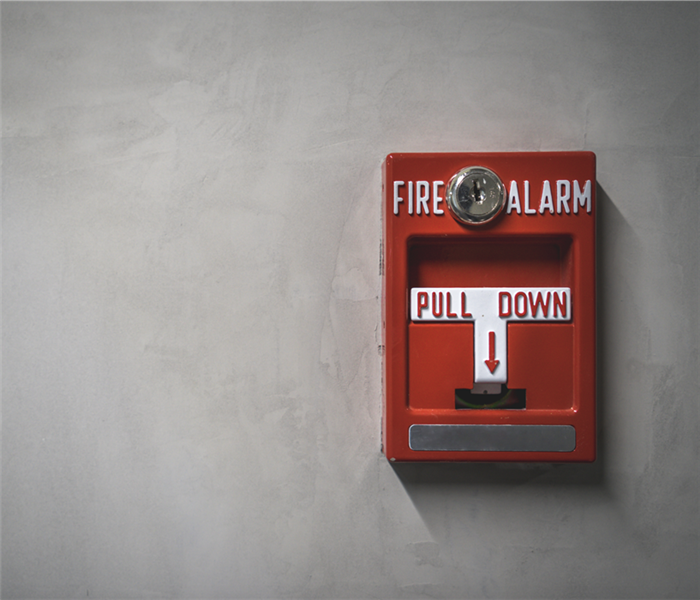Fire Detection and Suppression Systems: Enhancing Fire Preparedness for Your Company
8/14/2023 (Permalink)
 Investing in fire detection and suppression systems is an integral part of enhancing fire preparedness for your company.
Investing in fire detection and suppression systems is an integral part of enhancing fire preparedness for your company.
When it comes to protecting your company and its assets, fire preparedness is of utmost importance. Fire detection and suppression systems play a vital role in mitigating fire risks and minimizing potential damage. In this article, we will explore the significance of fire detection and suppression systems, their key components, and how they enhance fire preparedness for your company.
The Importance of Fire Detection Systems
Fire detection systems are the first line of defense in identifying fire incidents early on. They provide prompt alerts, allowing for quick response and evacuation, reducing the potential for injuries and property damage. Installing a reliable fire detection system is essential for enhancing fire preparedness.
Types of Fire Detection Systems
- Smoke Detectors: These systems detect smoke particles and trigger alarms. They are widely used and highly effective in detecting fires, especially in areas with smoldering fires or slow-burning materials.
- Heat Detectors: Heat detectors sense rapid increases in temperature and activate alarms. They are ideal for environments where smoke detectors may trigger false alarms, such as kitchens or dusty areas.
- Flame Detectors: Flame detectors use sensors to detect the presence of flames, providing early warning in situations where smoke or heat detectors may not be as effective.
Fire Suppression Systems
Fire suppression systems are designed to control or extinguish fires automatically. They can significantly limit fire spread and damage, enhancing safety and minimizing downtime. Some commonly used fire suppression systems include:
- Sprinkler Systems: Sprinkler systems activate when heat triggers the sprinkler heads, releasing water to suppress or extinguish the fire.
- Clean Agent Systems: These systems use specialized gases or chemicals to quickly suppress fires while minimizing damage to sensitive equipment or assets.
- Foam Systems: Foam-based systems create a blanket-like layer over the fire, suppressing flames and preventing re-ignition.
Integrating Detection and Suppression Systems
To maximize fire preparedness, it is crucial to integrate fire detection and suppression systems. When a fire is detected, the system can automatically activate the appropriate suppression system, providing an immediate response and increasing the chances of successful fire containment.
Maintenance and Testing
Regular maintenance and testing of fire detection and suppression systems are essential for ensuring their reliability. Schedule routine inspections, detector calibration, and system checks to identify any potential issues and ensure that the systems are in optimal working condition.
Compliance with Regulations and Standards
When installing fire detection and suppression systems, it is vital to comply with local fire safety regulations and industry standards. Engage professionals who are knowledgeable about the specific requirements to ensure proper system design, installation, and ongoing compliance.
Employee Training and Awareness
While fire detection and suppression systems are crucial, it's equally important to educate employees about their functionality, evacuation procedures, and the proper use of fire safety equipment. Conduct regular fire drills and training sessions to enhance employee preparedness and response in case of a fire emergency.
Investing in fire detection and suppression systems is an integral part of enhancing fire preparedness for your company. These systems provide early detection, swift response, and effective fire suppression, minimizing the potential for injuries, property damage, and business disruptions. By integrating these systems, conducting regular maintenance, complying with regulations, and educating employees, you can significantly improve your company's ability to handle fire incidents and protect the well-being of your employees and assets. Prioritize fire safety and be proactive in implementing robust fire detection and suppression systems for a safer and more secure workplace.





 24/7 Emergency Service
24/7 Emergency Service